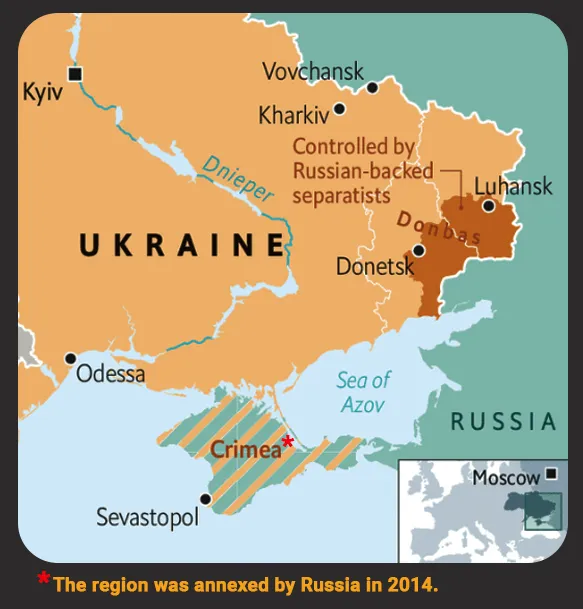Russia Fires Hypersonic Missile, Escalating Ukraine Conflict
Why in the news?
Russia’s launch of a hypersonic missile at Ukraine marks a significant escalation in the ongoing conflict, prompting global condemnation and rising tensions between the nations.
Overview of Attack:
- Russia launched a hypersonic intermediate-range ballistic missile, “Oreshnik,” targeting Ukraine’s Dnipro city on November 21, 2024.
- The strike is a direct response to Ukraine’s use of Western weapons, including S.-made ATACMS and British Storm Shadow missiles, against Russian territory.
- Putin warned that more strikes with such advanced weapons could follow, adding that civilians would be warned in advance.
Global Escalation and Reactions
- Russian President Vladimir Putin described the war as acquiring “global elements” after Ukraine’s attacks on Russian soil with Western weapons.
- Ukrainian President Volodymyr Zelenskiy condemned the missile strike as a “clear and severe escalation” and called for global condemnation.
- S. officials indicated that Russia notified Washington prior to the attack, while the U.S. had briefed Kyiv about the possibility of such a missile strike.
Damage and Military Implications
- The missile targeted military facilities and industrial enterprises in Dnipro, which was a Soviet-era missile manufacturing hub.
- The strike caused damage to critical infrastructure and fires, injuring two people.
- Russia also deployed other missiles, including a Kinzhal hypersonic missile and seven Kh-101 cruise missiles, six of which were intercepted by Ukraine’s air defence systems.
What is an Intercontinental Ballistic Missile?
- Range: ICBMs have a range of 5,500 to 16,000 kilometres.
- Speed: They travel at hypersonic speeds, faster than other ballistic missiles.
- Launch: Can be launched from silos, mobile platforms, or submarines.
- Trajectory: Travel through space and re-enter Earth’s atmosphere to hit targets.
- Guidance: Equipped with precise targeting systems.
- Multiple Warheads: Utilise MIRV technology to carry multiple warheads.
- Countries with ICBMs: Russia, US, China, France, India, UK, Israel, North Korea.
- India’s ICBM: Agni-V (5,000–8,000 km), Agni-VI under development (6,000–10,000 km).
Sources Referred:
PIB, The Hindu, Indian Express, Hindustan Times




